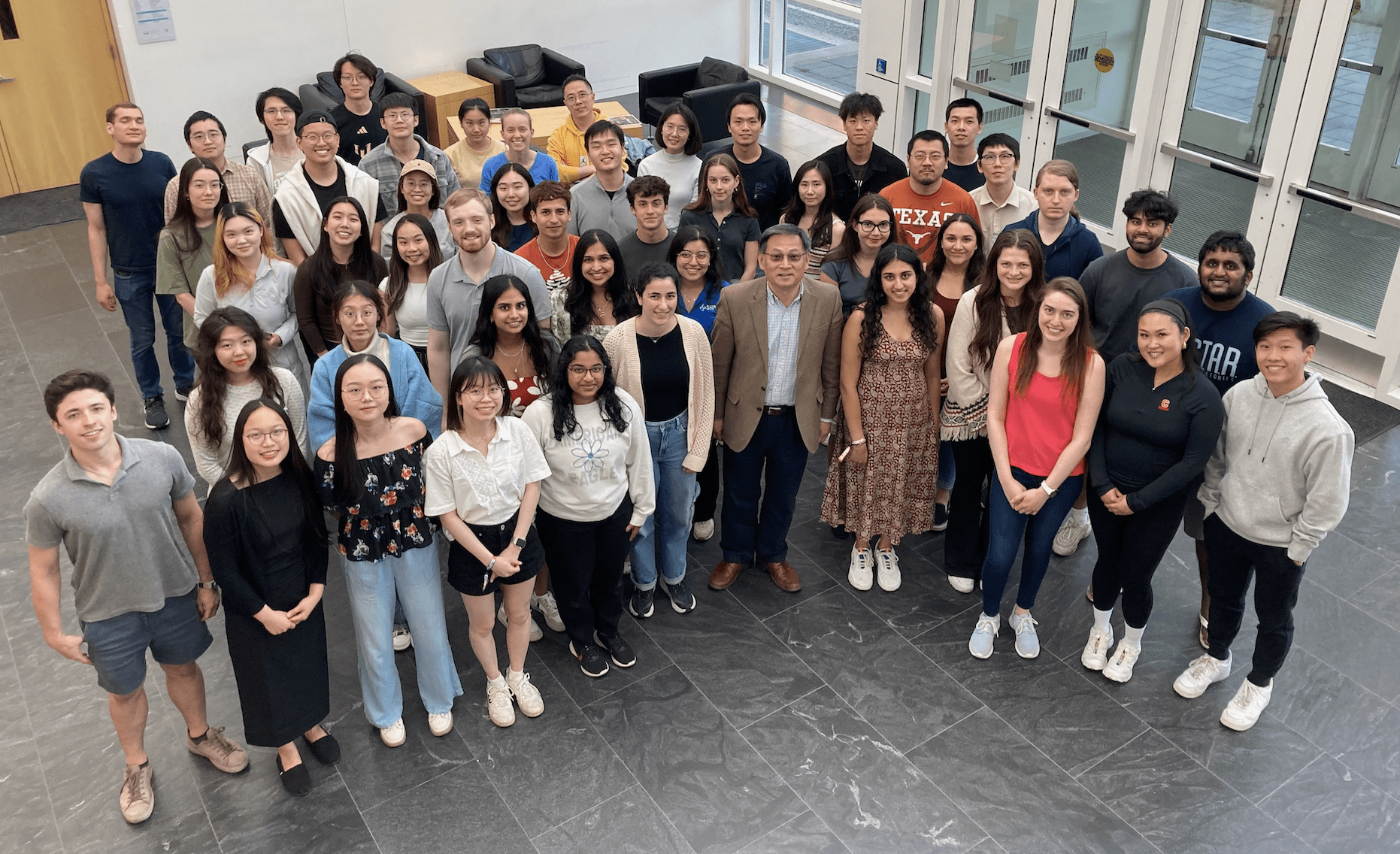Welcome

An important challenge in many biomedical and engineering applications is the prevention of unwanted nonspecific biomolecular and microorganism attachment on surfaces. We pioneered the molecular understanding, design and development of functional zwitterionic materials. Since the early 2000s, we have proposed the concept of super-hydrophilic zwitterionic materials, provided a molecular-level understanding of non-fouling mechanisms and developed several new classes of zwitterionic materials, including poly(carboxybetaine), poly(sulfobetaine), poly(trimethylamine N-oxide), poly(zwitterionic phosphatidylserine), and glutamic acid (E) and lysine (K)-containing poly(peptides). We have demonstrated no capsule formation upon subcutaneous implantation in mice up to one year, expansion of hematopoietic stem and progenitor cells (HSPCs) without differentiation, no anti-coagulants needed for artificial lungs in sheep, no antibodies generated against zwitterionic polymers, and long-lasting environmentally benign marine coatings. These highly biocompatible zwitterionic materials are excellent alternatives to widely used poly(ethylene glycol) (PEG) counterparts as PEG immunogenicity was found in COVID-19 vaccines. The work leads to four startup companies (ZWI Therapeutics, Covert Therapeutics, Taproot Medical, and Imperion Coatings) and over 50 awarded patents on zwitterionic technologies. Largely resulting from our work, zwitterionic materials have been widely adopted for biomedical and engineering applications. At Cornell, we aim to (a) integrate immunology into our biomaterial and drug delivery research programs and (b) translate our biomaterials and drug delivery technologies into medical and engineering practice. More specifically, we focus on two areas
Highly biocompatible materials:
We are developing highly biocompatible materials, which are either biologically inert or immunomodulatory, using both rational design and combinatorial screening. In collaborations with Weill Cornell Medicine, we are working on the controlled differentiation of induced pluripotent stem cells (iPSCs) into various cell products and the controlled culture of cancer organoids. In addition, we continue our research on capsule-free implants, anticoagulant- free blood-contacting devices, and environmentally benign anti-fouling marine coatings.
Low-immunogenic and targeted drug delivery:
We are developing low-immunogenicity, highly effective and targeted viral and non-viral carriers for drug and gene delivery for the treatment of several diseases such as cancer, and infectious, neurological, and autoimmune disease. These carriers include lipid nanoparticles (LNPs), endogenous virus-like vehicles (VLVs), adeno-associated virus vectors (AAVs), protein conjugates, fusion proteins, liposomes and micelles where zwitterionic materials play a critical role to achieve unique capabilities. In collaborations with Weill Cornell Medicine, Cornell Vet Medicine, The Hospital for Sick Children and Houston Methodist Cancer Center, we are working on cancer prevention-interception mRNA/LNP vaccines, for which the toxicity of nanocarriers is critically important and our expertise in materials immunogenicity make significant contributions.
We take a unique holistic approach to our research at the interfaces of materials and biological sciences from fundamental principles to applications. Novel materials and drug carriers are designed, synthesized, tested, improved and applied for a wide range of applications all within our group. The nature of our highly interdisciplinary and collaborative research program enables us to strive towards understanding nature at all levels and to solve real-world challenging problems. Creative ideas and innovative technologies with high and broad impacts are always our emphasis.
Please click on the icons above or browse our “research” section to learn more about our lab’s work.

Group photo – May 2024
Locations

Lab space: 132, 134, 138 and 140
Office: 131, 135 and 139

Lab space: 390
